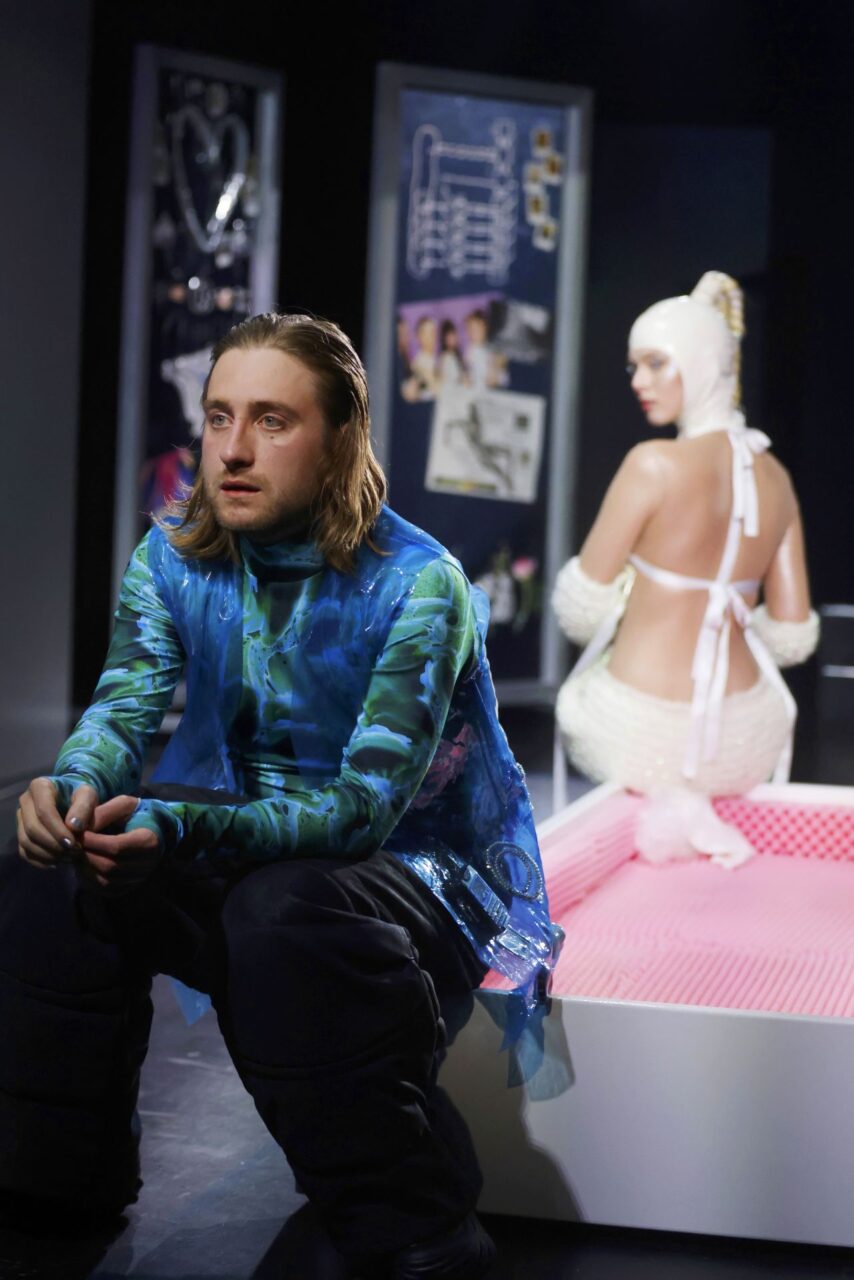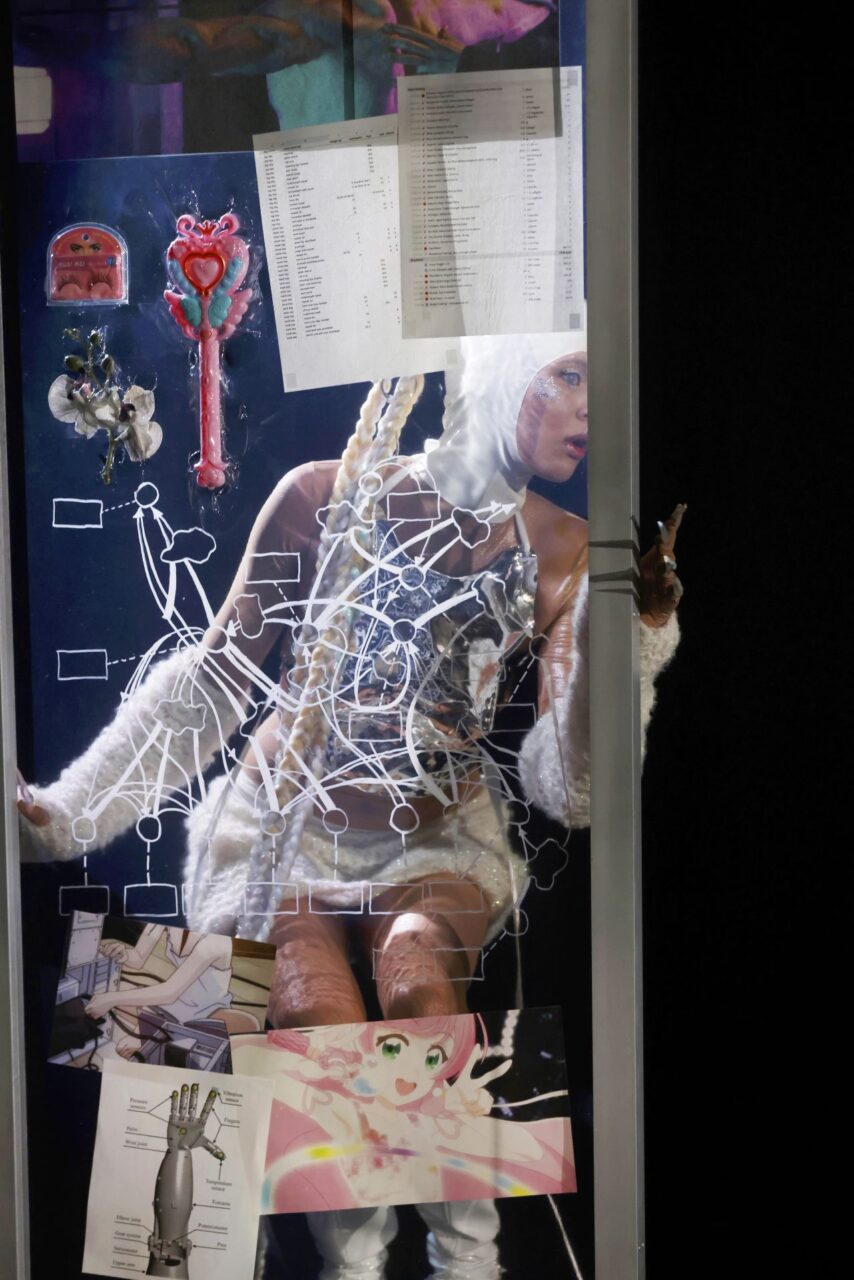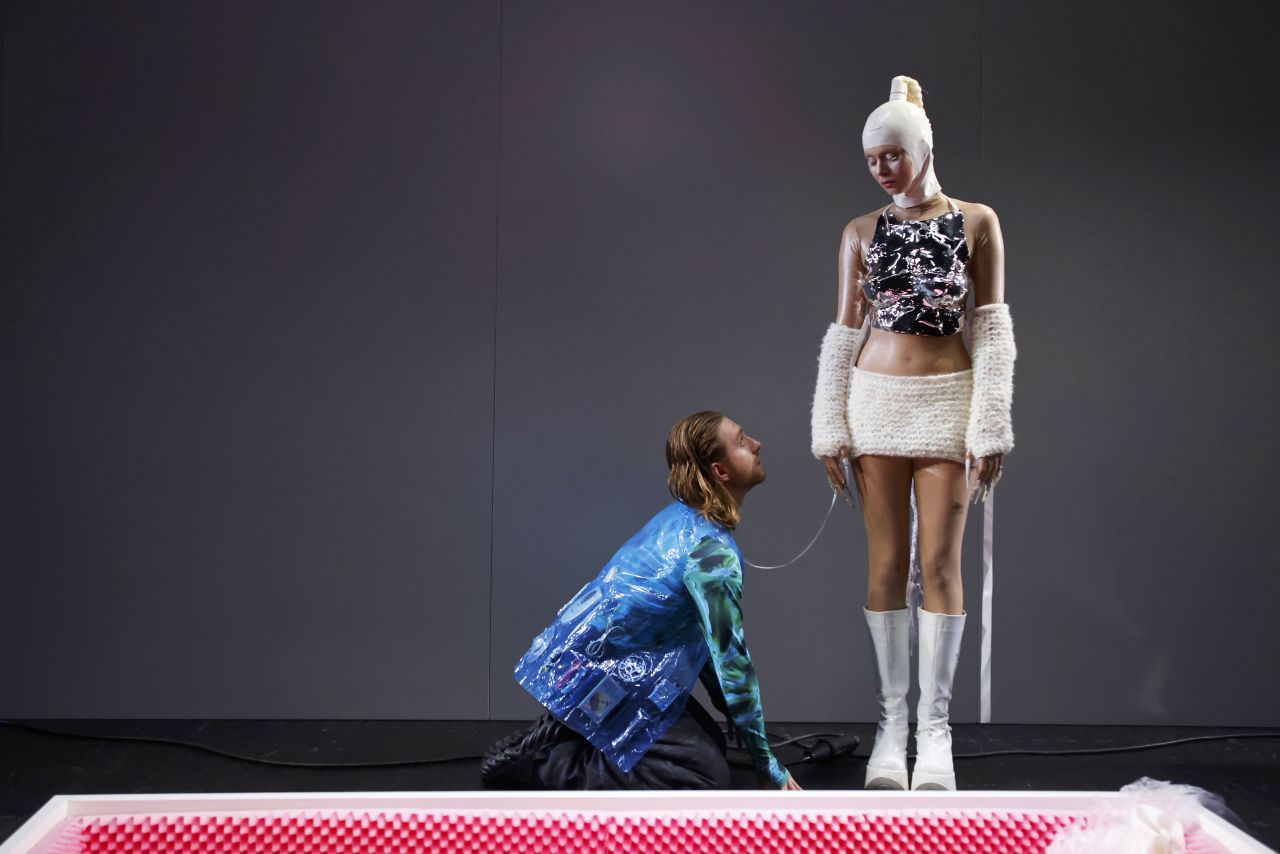Frankenstein didn’t see this coming
More than 200 years after Mary Shelley published Frankenstein at the age of 21, “I’m A Girl you Can hold IRL” at the Maxim-Gorki Theatre revisits the dangers of creation but through the veil of Artificial intelligence. Zelal Yesilyurt’s piece delves into the ugliness of “playing God”, exposing the sexism and potential dangers of power being yielded irresponsibly. The narrative challenges us to consider the implications of creating entities we may not fully control—AI being a modern-day monster that reflects our deepest fears and ambitions.
IRL: A Symptom and Cause of Modern Disconnection
The acronym ‘IRL’ pokes fun at our overreliance on the internet as a substitute for genuine human connection. Short for ‘In Real Life’, ‘IRL’ represents both a symptom and a cause of society’s overreliance on the internet as a stand-in for genuine human connection. Internet slang, like ‘IRL,’ inherently reinforces the distance between us, making our interactions increasingly impersonal and WiFi-dependent.

The play explores this irony, questioning whether our desire for real-life connection can ever be truly fulfilled if we continue to rely on superficial expressions like ‘IRL.’ While we yearn for authentic connections, we won’t achieve them as long as we keep reducing them to terms like ‘IRL’. It begs the question; can the internet ever be a surrogate for intimacy?
A Modern Pygmalion Tale
Set in the presumably not-to-distant-future, the play opens with a text from Ovid’s metamorphosis, specifically the tale of Pygmalion, a sculptor who falls in love with one of his statues. Similarly, Yesilyurt’s Pygmalion, played by Tim Freudensprung, is a foppish, hopeless romantic who feigns over a woman he longs to build in the image of someone he once knew. He becomes obsessed with building a female companion using advanced AI.

Throughout the play, Pygmalion’s interactions with his AI companion, Eve, expose the fractured communication between humans and robots. The script ridicules the ambiguities and misunderstandings that arise from machine translation. The rationality of Eve’s algorithm is at constant odds with the emotionally driven Pygmalion.
A Timely Reflection on AI and Power Dynamics
The story follows Pygmalion as he eventually builds his female companion: Galatea. Yesilyurt blends both Shelley and Ovid to create the female protagonist. Galatea is played with striking nuance by Sodia Iordanskaya. She is Shelley’s monster and Ovid’s statue incarnate. Galatea is the embodiment of Frankenstein’s monster—not in the sense that she is inherently dangerous, but in that she is the product of a creator’s hubris. She is a creature born into a world that has already created a story for her.

As the piece progresses, Galatea learns – like we are told AI is capable of doing- that her creator only wants one thing: to control her. Pygmalion’s innocent lustfulness becomes more obviously about yielding power and satisfying is own desires. His foppishness turns to arrogance. His arrogance is the toxic man-ifest.
I’m A girl you can hold IRL explores the ugliness of patriarchal dominance and control, zooming in on actions that set into motion an inevitable chain of events. Ultimately, I’m A Girl You Can Hold IRL astutely examines who should really be in control of a future that we cannot.


You must be logged in to post a comment.